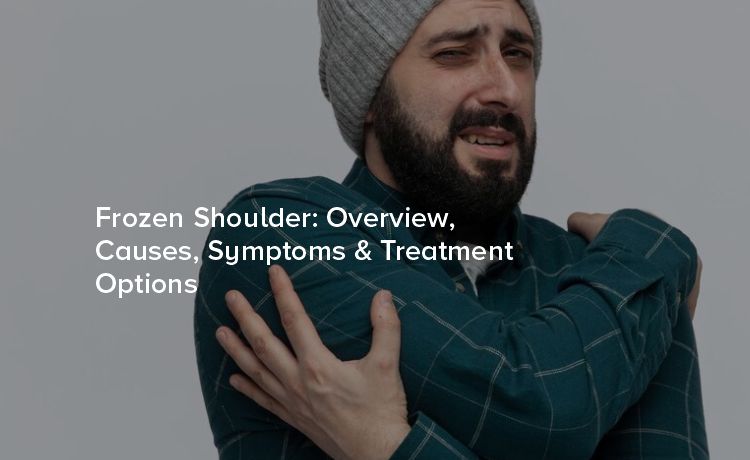
Frozen shoulder, also known as adhesive capsulitis, is a common but often misunderstood condition that affects the shoulder joint. Characterized by stiffness, pain, and limited range of motion, it can be a significant hindrance to daily activities, making even simple tasks challenging.
Frozen shoulder occurs when the connective tissue surrounding the shoulder joint, known as the shoulder capsule, becomes thick, stiff, and inflamed. This inflammation leads to the formation of thick bands of tissue called adhesions, which reduce the space within the shoulder joint, limiting movement and causing pain.
Frozen shoulder typically progresses through three stages, each with its own set of symptoms and timeline:
Freezing Stage: This initial phase lasts approximately 6 to 9 months. Pain gradually increases and range of motion begins to decrease.
Frozen Stage: During this stage, which can last 4 to 12 months, pain may diminish somewhat, but the shoulder remains stiff.
Thawing Stage: Finally, the shoulder slowly regains its range of motion over 6 to 24 months, with pain continuing to decrease.
While the exact cause of frozen shoulder remains unclear, several factors are known to contribute to its development:
Primary Factors
Age and Gender: Frozen shoulder most commonly affects people between the ages of 40 and 60 and is more prevalent in women.
Injury or Surgery: Immobilization of the shoulder due to injury or surgery can lead to the development of adhesions, increasing the risk of frozen shoulder.
Medical Conditions: Certain medical conditions, such as diabetes, thyroid disorders, cardiovascular disease, and Parkinson's disease, have been associated with a higher incidence of frozen shoulder.
Secondary Factors
Lack of Movement: Prolonged immobility due to a broken arm, stroke, or recovery from surgery can contribute to the onset of frozen shoulder.
Autoimmune Response: In some cases, the body's immune system may mistakenly target the shoulder joint, leading to inflammation and stiffness.
Recognizing the symptoms of frozen shoulder early can lead to more effective management and faster recovery. Common symptoms include:
Pain: Dull, aching pain in the outer shoulder area and upper arm, which can worsen with movement.
Stiffness: Marked reduction in the shoulder's range of motion, making it difficult to lift the arm or reach overhead.
Difficulty Sleeping: Pain and discomfort can interfere with sleep, particularly when lying on the affected side.
Weakness: Muscle weakness around the shoulder due to disuse and discomfort.
If you experience any of these symptoms, it is essential to consult a healthcare provider for an accurate diagnosis and appropriate treatment plan.
Treatment for frozen shoulder aims to relieve pain and restore movement. The following are some of the most effective approaches:
Non-Surgical Treatments
Physical Therapy: Guided exercises and stretches can help improve range of motion and strengthen the shoulder muscles. Physical therapy is often the first line of treatment.
Medications: Over-the-counter pain relievers, such as ibuprofen or acetaminophen, can help manage pain and inflammation. In some cases, corticosteroid injections may be recommended to reduce inflammation.
Heat and Cold Therapy: Applying heat or cold packs to the shoulder can help reduce pain and swelling.
Surgical Treatments
Hydrodilation & Manipulation Under Anesthesia (MUA): This procedure involves injecting saline into shoulder to dilute capsule and manipulating the shoulder joint while the patient is under anesthesia to break up adhesions and improve range of motion.
Arthroscopic Surgery: In severe cases, minimally invasive surgery may be performed to remove adhesions and scar tissue.
Alternative Treatments
Acupuncture: Some individuals find relief through acupuncture, a traditional Chinese medicine technique that involves inserting thin needles into specific points on the body.
Massage Therapy: Therapeutic massage can help improve blood flow, reduce muscle tension, and alleviate pain.
Preventive Measures
While it may not always be possible to prevent frozen shoulder, certain measures can help reduce the risk:
Stay Active: Regular exercise and stretching can help maintain shoulder flexibility and strength.
Post-Injury Rehabilitation: If you've had a shoulder injury or surgery, adhere to your rehabilitation program to ensure proper recovery and prevent stiffness.
Monitor Medical Conditions: Manage underlying medical conditions, such as diabetes or thyroid disorders, to reduce the risk of developing frozen shoulder.
Frozen shoulder can be a painful and frustrating condition, but with the right approach, recovery is possible. Understanding the stages, causes, and symptoms of frozen shoulder is the first step toward effective management. By exploring various treatment options and adopting preventive measures, you can minimize the impact of this condition on your daily life. Citizens Specialty Hospital is the top orthopedics hospital in Hyderabad.